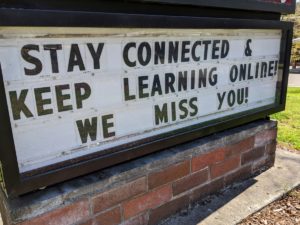Diane Ravitch, the new and the old, is appearing everywhere, as omnipresent as her twitter feed. Yesterday she was the guest for the first half of NPR’s Fresh Air and made the case to Terry Gross about those conniving hedge fund managers intent on undermining the democratic bastions of public education. Andrew Rotherham got the last twenty minutes to rebut. (Too bad they weren’t interviewed together; maybe that’s too explosive for NPR.)
While back in 2005 Dr. Ravitch was a big fan of NCLB, charter school expansion, and measuring teacher effectiveness in the classroom, she’s now an avowed opponent. From the interview:
“Regular public school parents are angry because they no longer have an art room, they no longer have a computer room — whatever space they had for extra activities gets given to the charters and then they have better facilities. They have a lot of philanthropic money behind them — Wall Street hedge fund managers have made this their favorite cause. So at least in [New York City] they are better-funded … so they have better everything.”
Fun fact: Dr. Ravitch is a Professor at the Steinhardt School for Culture, Education, and Human Development at New York University. Michael Steinhardt is a well-known philanthropist who endowed the school; in a letter in 2009, Dr. Ravitch criticized his support of a Hebrew language charter school in Brooklyn but wrote, “Steinhardt has given away hundreds of millions of dollars, much of it to promote Jewish cultural institutions and Jewish identity, as well as to endow the New York University School of Education, where I am a professor.” He’s also one of the founders of the hedge fund industry and had “a legendary career as Wall Street’s most successful money manager.”
So Dr. Ravitch’s salary is funded by one of those rotten hedge fund managers.
Here’s a sample of Andy Rotherham‘s follow-up:
“If I had been born just a few miles away, I would have had a very different public education experience,” he tells Fresh Air‘s Terry Gross. “So that’s the challenge. It’s not about giving up on public schools but it is about acknowledging that right now, when you step back, [only] 8 percent of low-income kids can expect to get a bachelor’s degree by the time they’re 24. … [And] when you have a system that produces 8 percent of the low-income kids getting out of college by the time they’re 24, something is wrong.”


